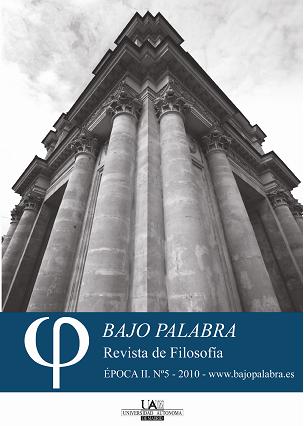Keywords:
God, Proof, Absurd, Consequentia Mirabilis, Necessity, ChaosCopyright (c) 2010 J. Pérez de Tudela

This work is licensed under a Creative Commons Attribution 4.0 International License.
Abstract
This article examines a historical trend in Christian religious experience which, while showing its resistance against either rational or logical discourse, tried also to justify faith on the unverifiabiliaty of a content at variance with reason. Paradoxically, this strategy is akin to one of the most celebrated rules in Western philosophical tradition: the reductio ad absurdum. It has often been noted that the use given to the concept of the absurd by Tertuliano, Pascal, or Kierkegaard, conflicts with the logical method used to prove the truth of a proposition by demonstrating the absurdity of its opposite. Neverheless, in Christian non-rational interpretations a logical rule is also used which can be identified with a reductio ad absurdum: the consequentia mirabilis. This rule, as well as the Christian view embedded in it, seeks to prove the consistence of one statement with any circumstance that is the case. The conclusion of this article speculates with the consequence of proving something which, albeit necessary, remains absurd, since its justification has no other ground but itself.
